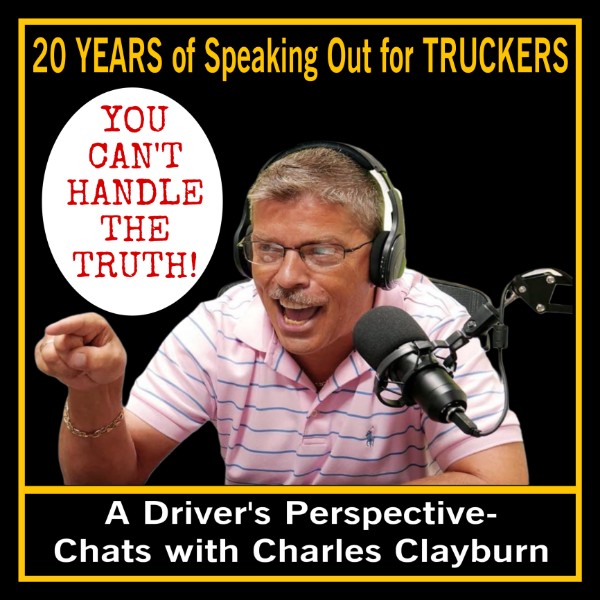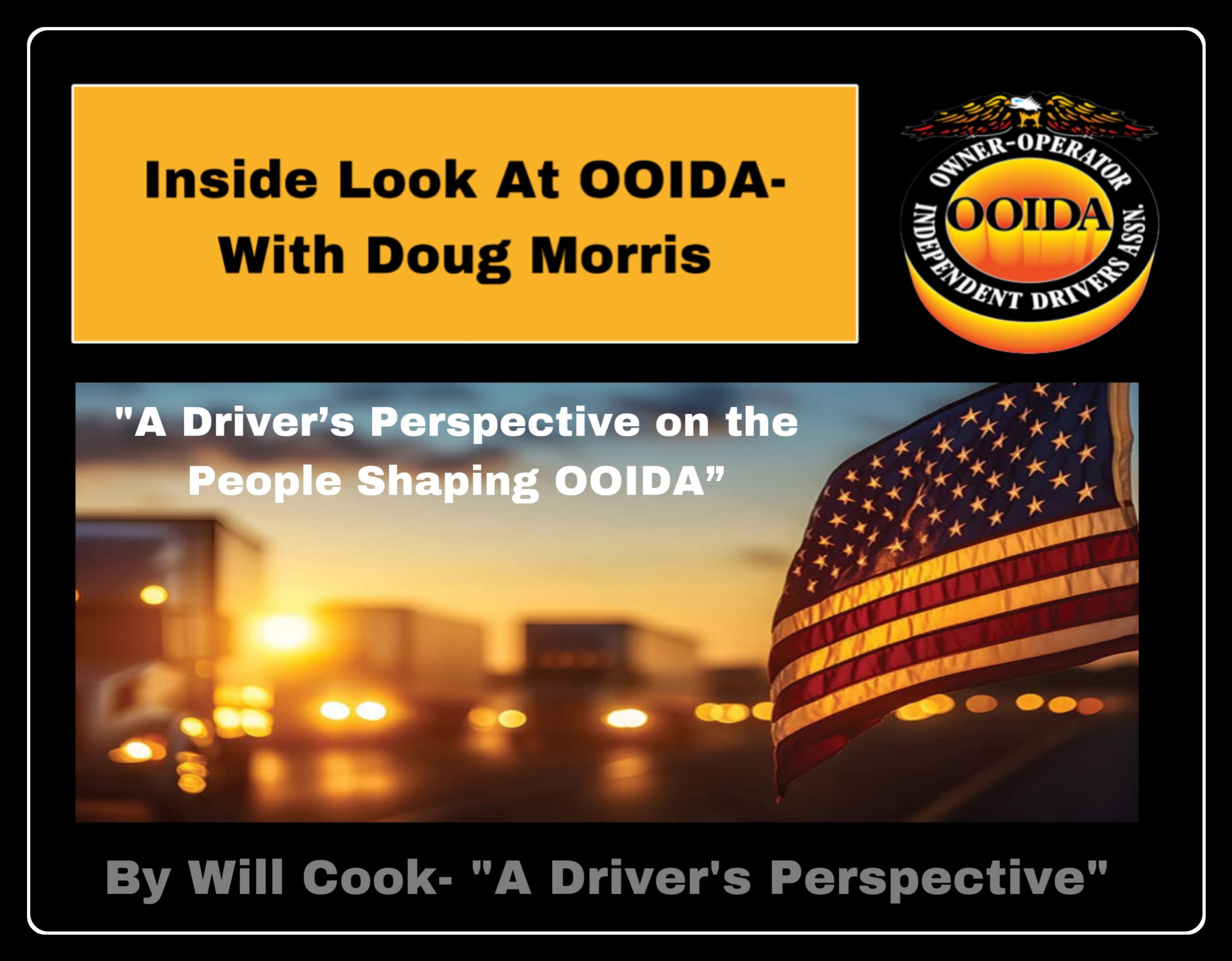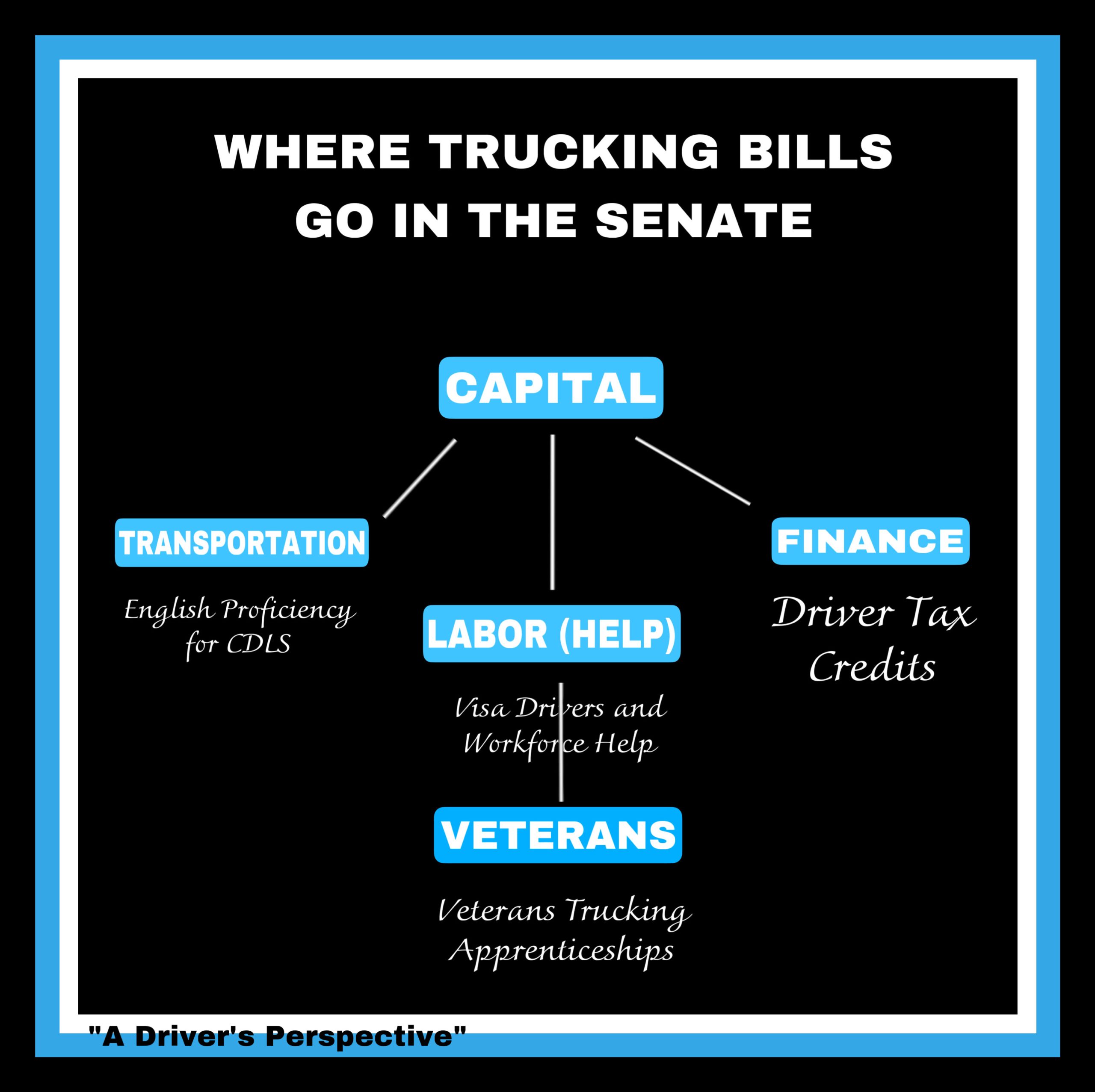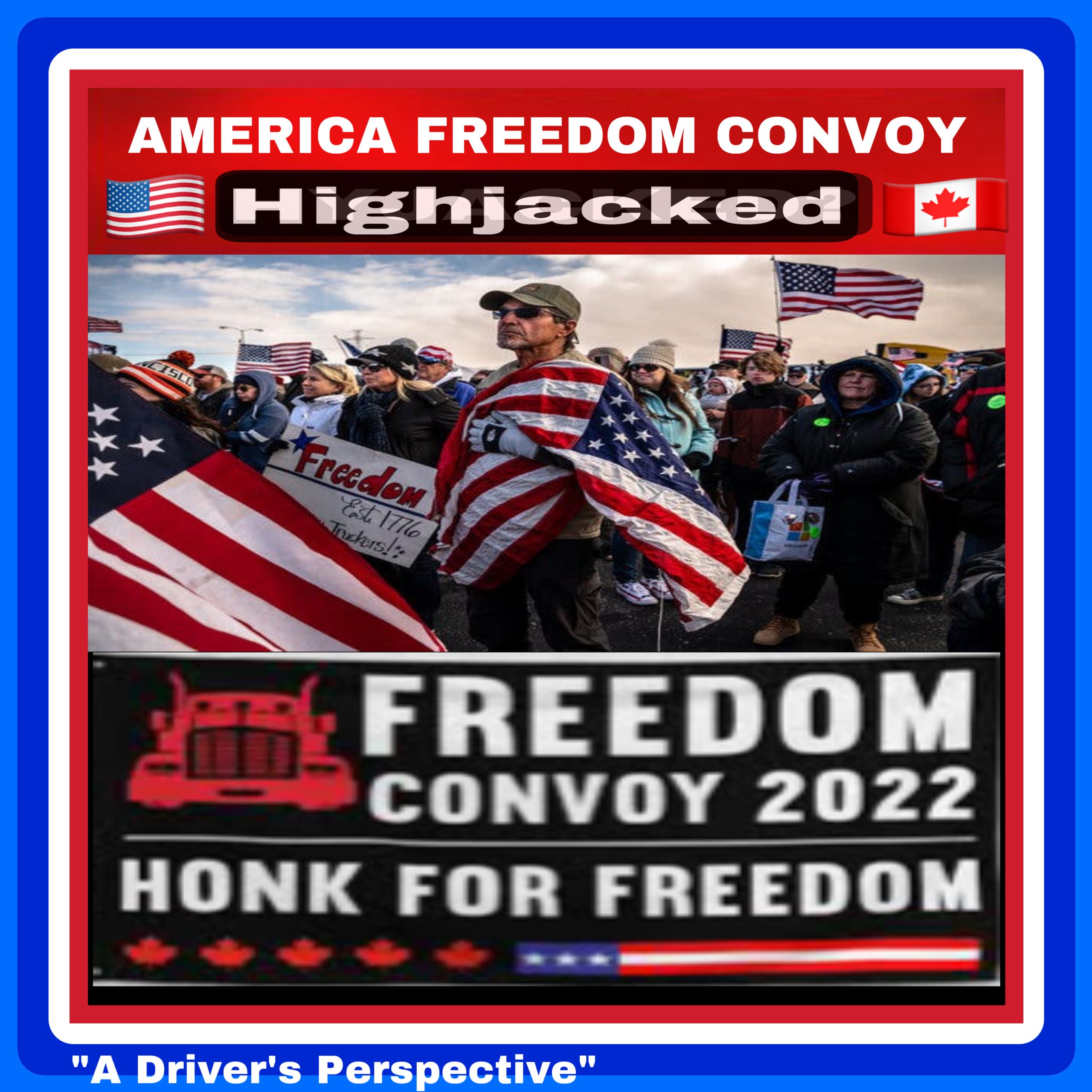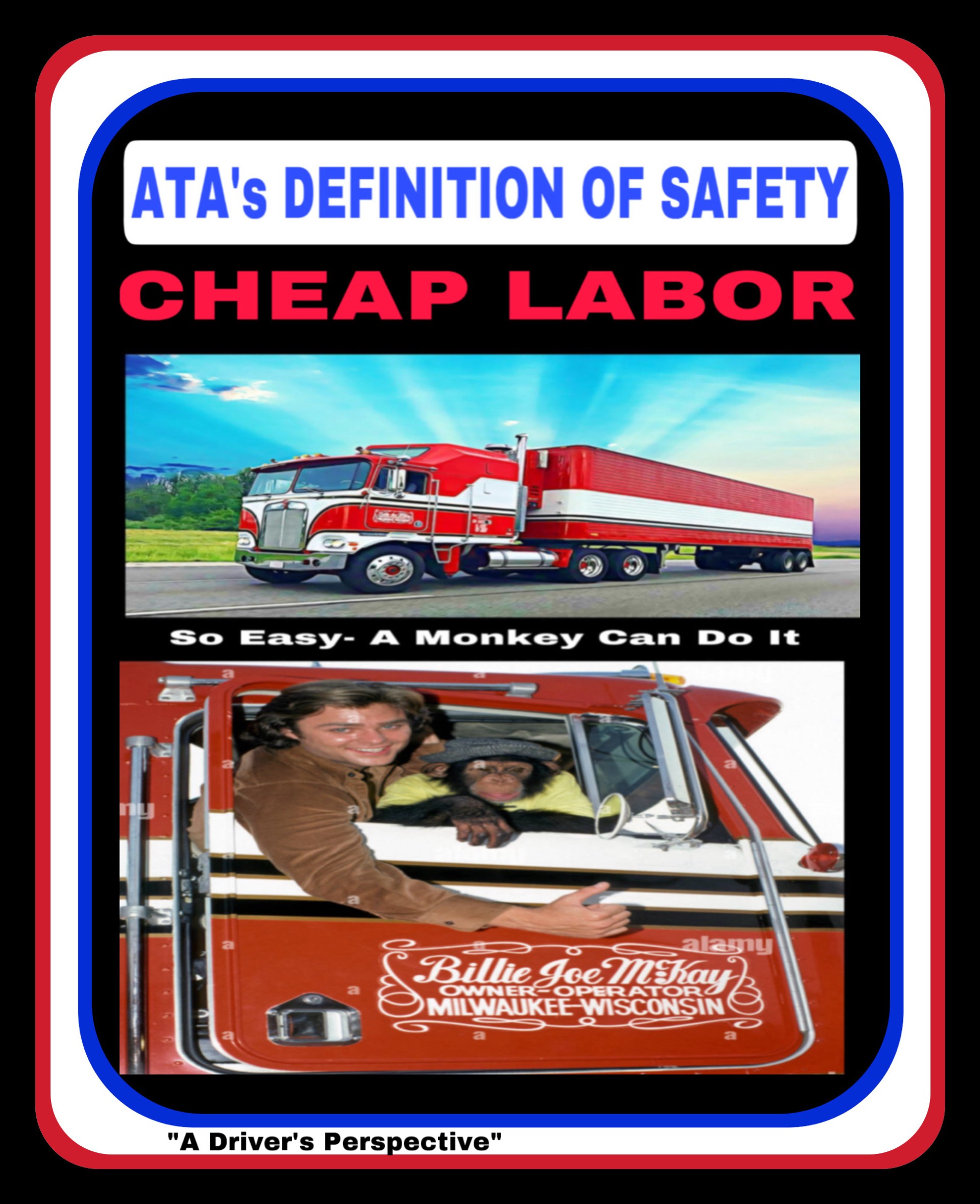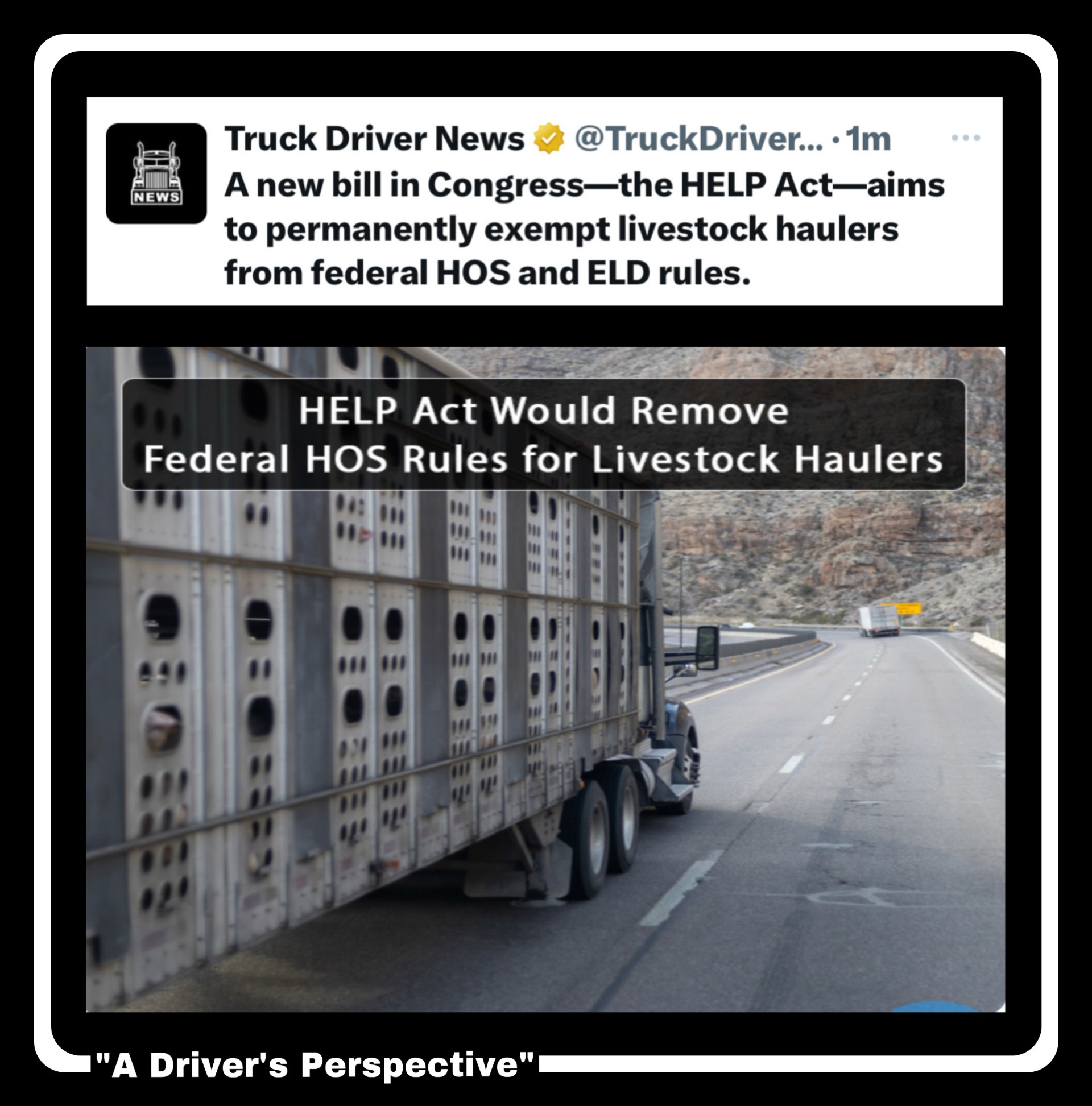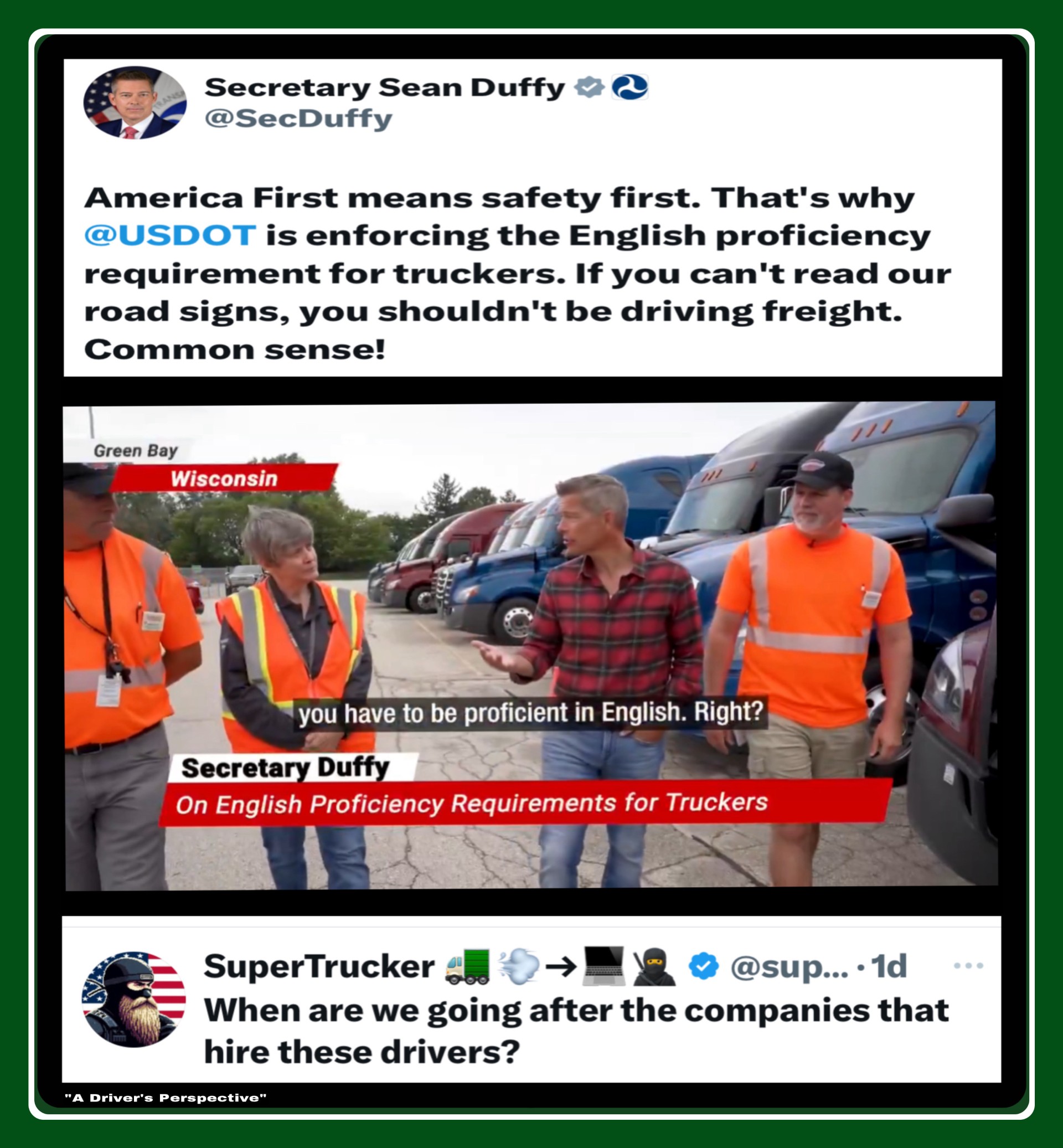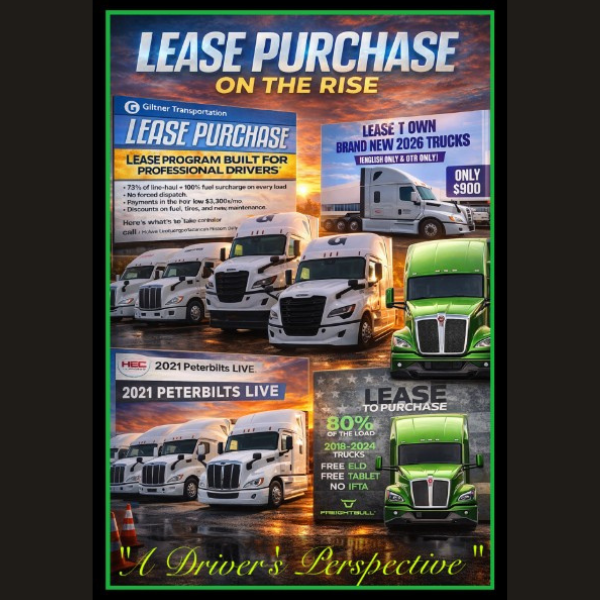
A Full Look at What’s Happening
From A Driver’s Perspective
Lately, a lot of folks have been using lease-purchase as content – clips, reels, arguments, hot takes. Some of it’s informed. Some of it’s emotional. Some of it’s just engagement farming.
Here at A Driver’s Perspective, this isn’t about building a platform or selling a position. It’s about laying things out plainly – from experience, observation, and time in the seat – and letting drivers think for themselves.
We’re seeing a wave of lease-purchase ads right now, and it’s consistent with what the market is doing heading into early 2026: capacity is finally tightening after a long downcycle, and carriers are repositioning to capture upside – without taking all the risk themselves.
Here’s what’s driving the comeback (as of late January 2026), and what it’s really saying about the industry.
1) The freight cycle is turning – capacity is tighter than it’s been in years
Multiple market updates in January show higher tender rejection rates and more leverage shifting back toward carriers compared to 2023-2025. FreightWaves noted January tender rejections near ~10% – a level above anything seen in the last two years and only comparable to the 2022 comedown period. Other 2026 outlooks also point to tightening capacity as a key reason rates may rise this year.
Translation: when dispatch boards get hotter, carriers want more trucks committed to their network. Lease-purchase is one way to lock in trucks and drivers.
2) Lease-purchase lets carriers grow capacity without buying it – and shifts risk onto the driver
When a carrier runs a lease-purchase fleet, they can often:
- Fill seats and trucks faster (a strong recruiting tool when company-driver hiring tightens)
- Stabilize capacity (lease drivers are motivated to keep rolling to cover the note)
- Reduce their own exposure to maintenance spikes, downtime, weak weeks, and turnover
In plain English: lease-purchase can become a risk-transfer model disguised as “be your own boss,” especially when freight is volatile.
3) Used truck activity is moving again – carriers want to monetize equipment
Used truck volumes and pricing picked up going into year-end 2025 and early 2026. ACT noted Class 8 retail prices rose in December, and industry coverage highlighted increased auction and retail movement.
That environment makes lease-purchase more attractive to carriers because trucks are:
- Easier to place into programs
- Easier to value
- And sometimes easier to move off the balance sheet
4) Regulatory pressure is rising on lease-purchase fine print
FMCSA’s Truck Leasing Task Force has raised concerns that lease-purchase rules “lack robustness,” and recent CFPB-to-DOT discussions include reviewing lease terms that may be unfair to drivers. In practice, drivers often rely on Truth-in-Leasing protections under 49 CFR Part 376.
What this means in real life: some carriers may be pushing lease-purchase harder while also rewriting contracts to look cleaner and reduce regulatory exposure.
5) Another tailwind: enforcement and policy actions that could remove capacity
There’s renewed discussion around enforcement and eligibility issues that could pull capacity out of the market and support rates. Carriers anticipating tighter capacity have extra incentive to secure trucks and drivers through long-term arrangements, like leases, so they’re not scrambling later.
What this trend is really saying about the industry
When lease-purchase starts showing up everywhere, it usually signals two things at once:
- Carriers believe the next 6–18 months may pay better than the last couple of years—they want trucks positioned now.
- They still don’t want all the downside risk—repairs, downtime, weak weeks, and fuel swings. Lease-purchase lets them chase upside while shifting downside to the driver.
That’s not automatically “bad.” It’s just the business logic.
How to read the ad being pushed (the subtext)
Claims like:
- “73% of linehaul + 100% fuel surcharge”
- “No forced dispatch”
- “Payments in the low $3,300s per month”
- “Discounts on fuel, tires, and maintenance”
…are designed to hit the two biggest emotions in this market: control and survival.
But the real question is simple: What happens on a bad week?
Breakdowns. Freight dips. Weather shutdowns. Low miles. Trailer shortages. Bad dispatch. Deadhead. Reset weeks.
That’s where lease-purchase programs are either exposed – or proven fair.
From A Driver’s Perspective:
12 questions that expose the truth fast
If a company can answer these clearly, in writing, you’re dealing with a more serious program:
- What are average weekly miles for lease operators by lane or region – not best-case?
- What is the all-in weekly fixed net (truck payment, insurance, plates, ELD, permits, escrow – everything)?
- Who controls fuel surcharge math – do you receive 100% exactly as billed?
- What chargebacks will you see (tires, DEF, tolls, lumpers, trailer rental, reefer fuel, admin fees)?
- Maintenance: how much is escrow, when can you access it, and do you lose it if you exit?
- Breakdown policy: loaner truck or unpaid downtime?
- Settlement transparency: can you see rate confirmations and customer linehaul vs accessorials?
- “No forced dispatch”: can you refuse loads without punishment or retaliation?
- Early termination: what are the walkaway costs, and can they bill you after turn-in?
- What’s the balloon or buyout at the end?
- What warranty coverage exists – and what voids it?
- Can you speak with three current lease drivers, not recruiter-selected success stories?
If they dodge these questions, the program is usually built to win for them, not for you.
WHEN LEASE-PURCHASE ACTUALLY MAKES SENSE (and when it doesn’t)
Lease-purchase isn’t automatically good or bad. It’s a tool.
And like any tool, it can either build something – or take a finger off if you use it wrong.
The problem isn’t that lease-purchase exists. The problem is that many drivers are pushed into it at the wrong time, under the wrong conditions, with the wrong expectations.
When lease-purchase can make sense
Lease-purchase can work only if most of the following are true:
- You already know your numbers – fixed costs, cost per mile, break-even RPM
- You’re entering at the right point in the freight cycle
- The carrier’s freight fits your operating style
- You have a real financial buffer, not hope
Lease-purchase should be a strategic move, not an escape hatch.
When lease-purchase is a bad idea – full stop
- If it’s sold as a rescue plan
- If the contract punishes you for slowing down
- If transparency stops at the settlement
- If success stories are curated
In those cases, it’s not independence – it’s exposure.
LEASE-PURCHASE vs TRUE OWNERSHIP vs COMPANY DRIVER
Which one fits which driver?
Each model fits a different driver, in a different season, with different priorities.
Company Driver
Best for stability. Not weakness.
Lower upside. Lower risk. Higher floor.
Lease-Purchase
Best for transition. Not escape.
More control. More pressure. Limited leverage.
True Ownership
Best for business-minded operators.
Maximum upside. Maximum responsibility. No safety net.
The real problem isn’t the model It’s the narrative
Drivers are constantly told:
- Company driver = stuck
- Lease-purchase = freedom
- Ownership = success
That narrative serves recruiting – not drivers.
Real success is alignment:
Your finances. Your stress tolerance. Your family. Your season of life.
The question every driver should ask
Not:
“Which one makes the most money?”
But:
“Which one lets me survive bad weeks without losing control?”
Because trucking doesn’t break drivers on good weeks. It breaks them on the bad ones.
Final word from A Driver’s Perspective
There is no shame in choosing stability. No badge for suffering.
And no shortcut to independence.
The smartest drivers aren’t chasing titles. They’re choosing positions.
— Will
Just A Driver’s Perspective

